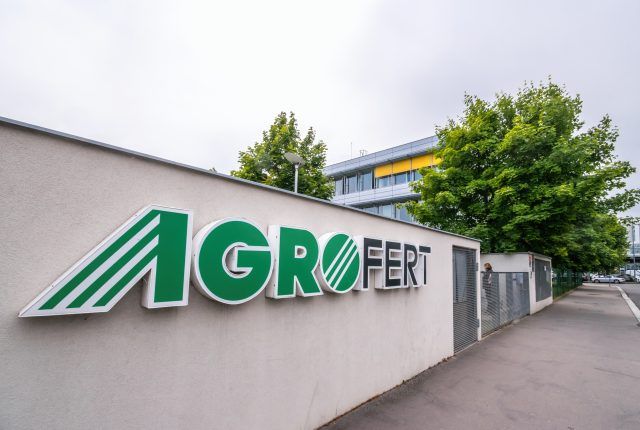25/04/2024
|
BusinessInfo.cz
It’s worth doing a little experiment during a weekend walk anywhere in the Czech Republic: Notice small signs with the EU flag, which can be seen at a surprisingly large number of buildings or projects. At monuments, at playgrounds and halls, in parks and rest areas, at schools, science centers, hospitals. In the shadow of cheap Euroscepticism, a part of society overlooks everything that the European Union has paid for in the country as generously as the blue-and-yellow signs at the repaired bridge.
From May 1, 2004, when the Czech Republic officially joined the EU, until now, the Czech Republic is still a net recipient of European money. So far, it has collected more than a trillion crowns more than it sent to the common coffers. At the end of last year, it was exactly a dizzying 1,061 billion crowns more.
According to the Ministry of Finance, 2015 was a record year, when the Czech Republic was in the surplus for a single season by 150 billion crowns. And the Czech Republic still remains the net recipient, when, for example, in the 2022 season it was in the plus by 61 billion crowns.
In absolute terms, the Czech Republic has paid a little over 809 billion crowns into the EU budget since joining the EU until the end of 2022, but has received more than 1.8 trillion crowns.
What is the Czech Republic at the top of the EU? The least poverty, the most railways
In some partial macroeconomic data or statistics, the Czech Republic is at the head of the European Union after twenty years of membership:
- The lowest proportion of people at risk of income poverty – 10.2 percent
- The densest network of railways – 120.7 km per thousand square kilometers
- The highest share of sales from electronic sales – 30.5 percent
- The highest proportion of people working in industry – 27.9 percent
- The highest proportion of people with completed secondary education – 64.2 percent
Source: CZSO
Integration into the Union, however, did not only help the Czech economy in the form of subsidies. The opening of the European market was a desired impetus for most businesses. “The entry into the EU marked the beginning of a phase of strong economic growth driven by export industries for the Czech Republic. At the same time, foreign demand is the key driver of growth so far. In the long term, 80 percent of Czech goods go to the countries of the European Union, which is one of the highest shares in the EU at all,” said Marek Rojíček, chairman of the Czech Statistical Office (ČSÚ). The office has prepared a publication in connection with the celebration of the anniversary of accession Czech Republic: 20 years in the European Union.
According to the CZSO, the most dynamic economic growth was seen in the first years after accession. In the stage before the arrival of the global crisis in 2008, the Czech economy grew by an average of a very solid 5.3 percent per year. During the entire two decades of membership, the Czech Republic achieved an average GDP growth of 2.3 percent per year, taking into account all crises and recessions.
The share of the Czech Republic in the overall European economy is also growing. Since joining in 2004, the share of EU GDP has increased from 1.1 percent to 1.8 percent last year.
Of the post-socialist countries, the Czech Republic is the best
Of all the post-socialist states that joined the Union, the Czech Republic is doing the best. At least in terms of catching up with Western living standards. When calculating gross domestic product per inhabitant, the Czech Republic improved from 81 to 91 percent of the EU average. In Hungary it is 76 percent, in Poland 80 percent and in Slovakia 73 percent. However, the chief analyst of Raiffeisenbank, Helena Horská, commented on these data and reminded that the shift is considerably higher in these countries, for example in Poland by almost 30 percentage points.
At the same time, in recent years the convergence of the Czech Republic to the West has almost stopped, which corresponds to the opinion of many Czech businessmen: The economic model based on subcontracting within multinational supply chains has run out and it is now necessary to find a new recipe for the Czech economy.
Looking back over the past two decades in the EU, however, satisfaction prevails among domestic companies. This was confirmed by a recent survey conducted among entrepreneurs by the Union of Industry and Transport. “Although the mood in society and some of our politicians often say the opposite, our survey clearly showed that Czech companies mostly value membership of the European Union and appreciate its benefits for their business. They perceive the European Union primarily as a place that provides them with safety, prosperity, a unified and fair approach,” said Jan Rafaj, president of the Union of Industry and Transport of the Czech Republic.
In the survey, fully 89 percent of companies confirmed that they are doing better thanks to the free EU market. For almost half of the companies, it is also important that they can more easily employ workers from other countries of the European Union.
Export after entry? Even ten times higher
The opportunity to enter the European market without customs barriers benefited primarily exporters. Before accession, exports accounted for only half of Czech GDP, after accession the share increased to 80 percent. Czech companies have also gained credibility for foreign partners thanks to their address in the EU.

The benefit of the free market was appreciated, for example, by the Association of Companies of the Railway Industry of the Czech Republic. According to her, this industry realizes export sales to EU countries of almost 60 billion crowns per year. Among the engineering companies that praise their entry and membership in the Union are, for example, the Škoda Group, the seat manufacturer Borcad, and the suppliers of security systems Retia and Kontron.
Jakub Weimann, Chairman of the Board and CEO of the Bonatrans Group, also sees a clear benefit. “For example, if we compare the development of the volume of annual exports to EU and EEA countries in 2003 and twenty years later, we see an absolute increase from 2.4 to 7.2 billion crowns per year – i.e. a threefold increase. Thanks to the membership, we got into important markets in the EU, where before there was a local competitor and the markets were largely closed to us until then. This applies, for example, to France or Italy, where before 2004 we realized sales of up to 70 million crowns per year, while in recent years it has been more than tenfold.”
The tourist industry also attributed the multiple growth thanks to the entry into the Schengen area and the perception of the Czech Republic as a safe destination thanks to its membership in the EU. With the exception of the covid pandemic, the field is constantly growing. In 2022, it generated revenues of 118 billion crowns. According to the CzechTourism agency, the number of tourist arrivals to the Czech Republic has increased over the past decade, despite the Covid-19 drop, from around 15 million in 2012 to more than 22 million last year.
Agriculture has opened the way to high funds
On the one hand, farmers had to face greater competition after joining the EU. “Due to low profitability, there was a decline in the condition of pigs and the importance of fruit growing and potato cultivation decreased. However, many areas of crop production were developing. Thanks to increasing productivity, milk production has maintained good competitiveness,” said the Czech Statistical Office.
Farmers and food producers, on the other hand, gained access to the opulent resources of the EU’s Common Agricultural Policy, which has been the largest item in the European budget for a long time since the 1970s. Although its share is gradually decreasing, it is still about a third of all EU money. For example, for the period 2021 to 2027, 386 billion euros are reserved for European agriculture, i.e. more than a dizzying 9.7 trillion crowns.
The reason is not only the striving for food self-sufficiency of the continent. The huge subsidies flowing into agriculture are intended to maintain life in the countryside at all, so that the population does not withdraw to a greater extent to a more comfortable life in the cities.
According to the Ministry of Finance of the Czech Republic, for example, in 2022 alone, more than 29.5 billion crowns flowed into the Czech countryside from the EU’s Common Agricultural Policy. In addition, the Czech Republic received additional funds for agriculture and cohesion from the EU Recovery Support Instrument. That was another more than 10 billion crowns.

But the problem with subsidies is that they are swallowed mainly by large companies or agro-barons who own vast areas of land, from which the volume of some subsidies is derived. Smaller family farms account for less, and in addition, large holdings supported by Eurofunds are becoming tough competition for them.
According to the State Intervention Agricultural Fund, for example, in 2022 the largest recipient of agricultural subsidies was the fruit and vegetable wholesaler Bovys Hlinsko. The supplier of the Milk for Schools and Fruit for Schools programs received almost 190 million crowns in subsidies in one year, about a third of which was money from the EU and the rest from the Czech budget. The central importance of the subsidies is more pronounced in comparison with the company’s total sales, which reached 568 million crowns that year.
Other large recipients of European subsidies include, for example, the Vodňanské kuře company from the Agrofert holding, the largest domestic dairy group Madeta, the Žichlínek Agricultural Cooperative, the Uzeniny Příbram company or the Agro-Měřín agricultural enterprise from Vysočina.
The European Union has heard criticism of the excessive support of agro-barons, and in the current programming period, subsidies per hectare of area are decreasing compared to before.
Subsidies began to distort the market
It is precisely in the area of the subsidy machinery that one can look for the shadier features of membership in the Union. On the one hand, some companies have developed a kind of drug addiction to subsidies. Furthermore, they distort the market, because even companies survive that would not be viable without the doping of European money. At the same time, they bind workers who are subsequently absent from the labor market. Therefore, more active companies find it difficult to find employees.

At the same time, subsidized gold veins logically create space for corruption and embezzlement. For example, in probably the most egregious case of the Northwest Regional Operational Program, which is still being resolved, subsidies of up to 14 billion crowns were to be manipulated in the Ústí and Karlovy Vary Regions.
Criticisms are also aimed at insufficiently effective use of European funds. For example, Poland made much better use of them, which built highways at a rate of 280 kilometers per year in the last decade, while the Czech Republic only added roughly two dozen kilometers per year at the same time.
Bureaucracy? It is blamed on the EU, but we often do it ourselves
Criticism is also leveled at the allocation of subsidies due to the associated complex bureaucracy. Consultants who help companies tap European money make a living from the system. For these intermediate articles, part of the European money remains useless. At the same time, according to some entrepreneurs, the EU is not to blame for the complex system of subsidy programs, but the domestic bureaucracy. “Things that are less pleasant for business or for life are very often blamed on the European Union. I think that quite often we have ourselves to blame for that, that we are able to invent EU rules for ourselves that are worse than we necessarily have to,” said businessman Pavel Bouška, owner of Vafo, on the Czech TV show Bilance. The company produces pet food and, according to the owner, has grown by 45 to 50 percent a year since joining the EU due to the fall of barriers, and now has an annual turnover of over 10 billion crowns a year.
Commission could enforce ‘right to simplify’
However, the European Commission could soon reduce the administrative burden on entrepreneurs. Former Italian Prime Minister Enrico Letta called it the main obstacle to the development of the single market in his newly published report. His recommendations were also reflected in the conclusions of the summit of EU leaders. “While writing the report on the internal market, Enrico Letta carefully listened to the problems Czech companies face in the EU. And not only that, he included their demands in his report, he even devotes an entire chapter to them, in which he points out that the EU must fight especially with regulations and bureaucracy,” informed the president of the Chamber of Commerce, Zdeněk Zajíček.
The EU could thus enshrine the “right to simplification” in the legislation. This could lead to a general reduction and modernization of reporting obligations. In addition, the principle of “digital by default” would be introduced, as well as a new rule so that companies submit the same information to the authorities only once.
You can read more about the survey, which investigated the satisfaction of Czech companies with EU membership
Even twenty years after accession, the Czech Republic still has plenty of new topics to discuss on EU soil. Nevertheless, the past two decades may one day be written down in history textbooks as a stage of unprecedented development that will not be repeated.










